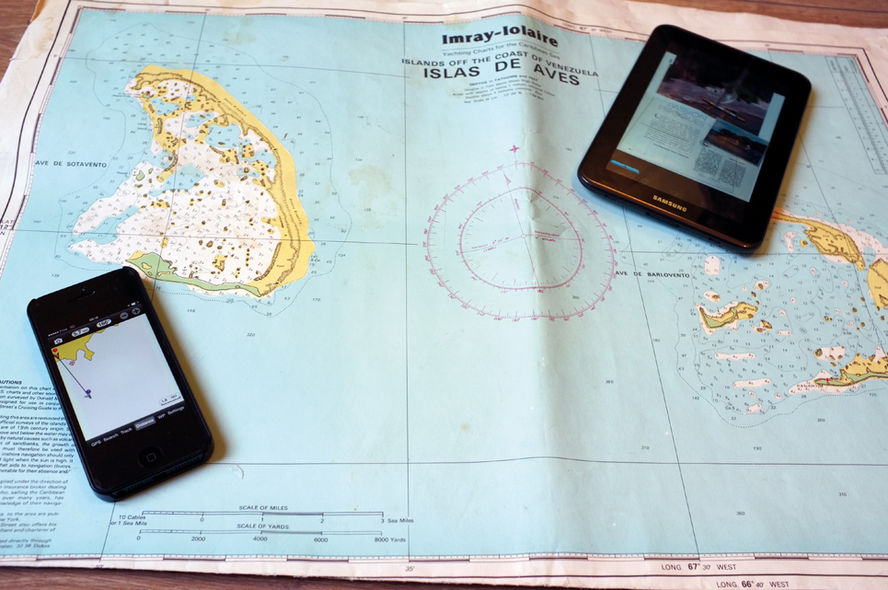
Issue #: 139
Published: January / February 2015
- Price per issue - digital : 5.40€Digital magazine
- Access to Multihulls World digital archives Digital archives
After a year cruising as a family round the world in a catamaran, Pierre Leitgib sums up his experience of telecommunications aboard, and in particular, the internet. This former consultant with Hewlett-Packard, who describes himself as an ‘internet-addict’, charts his choices and his connections, from the Mediterranean to the Caribbean.
For our round the world program, we wanted a floating home, with water, electricity and...the internet. We wanted a permanent, fast and cheap connection, and we also wanted this connection to work in the remote anchorages which we prefer to expensive marinas.
For voice communication between ourselves, we use the VHF. Apart from the fixed VHF aboard, we have 2 waterproof portable VHFs (which are part of the watchkeeper’s safety kit – a man overboard could guide the boat to them, even at night). We also have 4 walkie-talkies, which we bought in a department store for 30 euros a pair. Their price/size/weight ratio is much better than that of the VHFs, but their performance is not as good. They are very useful with the children, who have a tendency to clutter up the airwaves...
For local voice communications, we use the GSM telephone. To call Europe, depending on the person we are speaking to, the time, and where we are calling from, we use Skype, the GSM or the Iridium.
For the internet, we have chosen wi-fi and the GSM, and ruled out the SSB and the satellite connection from the start - the first for its archaic bandwidth, the second for its prohibitive cost. We invested in an Iridium for emergencies and ocean crossings. It allows us to receive weather files, e-mails in a degraded form, and make calls in case of an emergency on the high seas.

Remaining connected aboard: it’s easy with the modern tools.
There are therefore two solutions for the internet aboard, and we use them alternately: the GSM telephone serving as a hot-spot, and the wi-fi, which is obviously preferable when it is available.
Before examining these two options, let me explain how we use them. We have two PCs aboard, (one of which is permanently connected), a tablet and a smartphone, which serves as a hot spot. We are two adult users, and are well aware of things which swallow up data. Our e-mail volume is moderate, but we surf intensively. We try to avoid video and skype, especially with the GSM connections. Our total GSM consumption is in the order of one gigabyte per week, the major part of our traffic (>90%) coming from browsers and e-mails.

Pierre, a connected reader, gives us his tricks for surfing cheaply when blue-water cruising.
We have disabled all the automatic updates, particularly those of Windows which are very disadvantageous in terms of volume. We leave aside Facebook, Skype, Dropbox and other sharing tools, where just the ‘handshakes’, even in inactive mode, consume more than all the rest. We use Outlook (it’s not the most economical tool in terms of network traffic, but effective tools which function off-line are becoming rare) in off-line mode, and only download the e-mail headings, so we can delete those which we won’t read, directly on the server, and not download them. We manage two e-mail accounts, one for daily use, the other for registration for web sites and internet services, which will therefore ...
What readers think
Post a comment
No comments to show.